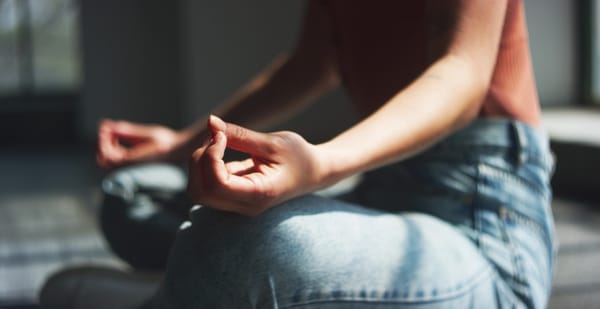Optimizing Your Sleep Naturally: Science-Backed Strategies for Restful Nights
In our fast-paced world, getting a solid night's rest can seem like a luxury, but it's actually one of the most fundamental gifts we've been given for maintaining health and vitality

Hey there, if you've ever stared at the ceiling at 2 a.m., wondering why sleep feels like such an elusive thing, you're not alone. In our fast-paced world, getting a solid night's rest can seem like a luxury, but it's actually one of the most fundamental gifts we've been given for maintaining health and vitality. Nature has equipped us with everything we need to thrive, including the rhythms and resources to support deep, restorative sleep. Drawing from a wealth of medical studies and expert insights, we'll explore practical, evidence-based ways to optimize your sleep. From aligning with your body's natural clock to incorporating God-given plants and habits, these strategies can help you wake up feeling refreshed and ready to tackle the day. Let's break it down step by step, so you can build a routine that works for you.
Why Sleep Matters: The Foundation of Wellness
Sleep isn't just about closing your eyes—it's a complex process that rejuvenates your body and mind. Research shows that during sleep, your brain processes memories, repairs tissues, and regulates hormones. A study from Johns Hopkins Medicine explains how sleep cycles through stages, including deep non-REM sleep for physical recovery and REM sleep for cognitive functions like learning and emotional processing. Without enough quality sleep, you're at higher risk for issues like weakened immunity, mood swings, and even chronic conditions such as heart disease or diabetes.
The Centers for Disease Control and Prevention (CDC) emphasizes that adults need 7-9 hours of sleep nightly for optimal health, as outlined in their comprehensive guide on sleep. Yet, many of us fall short, leading to what experts call "sleep debt." A meta-analysis published in Sleep Medicine Reviews found that improving sleep quality directly boosts mental health, reducing symptoms of anxiety and depression. It's clear: prioritizing sleep is like investing in your overall well-being, using the natural tools we've been provided.
Aligning with Your Circadian Rhythm: Nature's Built-In Clock
Your body runs on an internal clock known as the circadian rhythm, which syncs with the Earth's day-night cycle. This rhythm influences when you feel alert or sleepy, and disrupting it—like with irregular schedules or too much artificial light—can throw off your sleep. According to a detailed overview from the Sleep Foundation, exposure to natural light during the day helps regulate this rhythm, signaling to your brain that it's time to be awake.
Studies, such as one in Cureus, highlight how aligning meals, exercise, and light exposure with your circadian rhythm can enhance sleep quality. For instance, getting morning sunlight resets your clock, making it easier to wind down at night. Aim for at least 30 minutes of natural light exposure shortly after waking. If you're dealing with shift work or jet lag, gradual adjustments to your schedule can help, as supported by research in PLOS Digital Health on first-year physicians, where circadian disruptions led to mood dips but could be mitigated with consistent timing.
To optimize this naturally, dim lights in the evening and avoid screens an hour before bed—the blue light suppresses melatonin, your body's sleep hormone. A StatPearls review on circadian physiology notes that this simple habit can shorten the time it takes to fall asleep. Think of it as honoring the natural cycles we've been designed with, allowing your body to rest as intended.
Mastering Sleep Hygiene: Everyday Habits for Better Rest
Sleep hygiene refers to the habits and environment that set the stage for quality sleep. Experts from the Sleep Foundation recommend starting with a consistent schedule: go to bed and wake up at the same time every day, even on weekends. This reinforces your circadian rhythm and can improve sleep efficiency, meaning more time actually asleep versus tossing around.
One key tip is creating a wind-down routine. The Mayo Clinic's sleep guide suggests avoiding heavy meals close to bedtime, as they can cause discomfort and disrupt digestion. Instead, opt for light snacks if needed. Caffeine and alcohol are big culprits too—caffeine lingers for hours, and while alcohol might make you drowsy, it fragments sleep later, per NIH News in Health.
Physical activity during the day is another cornerstone. But timing matters: vigorous exercise too close to bed can rev you up, so aim for earlier in the day. A Harvard Health article advises incorporating relaxation techniques like reading or gentle stretching to signal it's time to unwind. These practices aren't complicated; they're straightforward ways to tap into your body's innate ability to rest.
Nutrition and Diet: Fueling Sleep with Natural Foods
What you eat plays a surprisingly big role in how well you sleep. Research in Advances in Nutrition shows that diets rich in whole foods promote better sleep quality. For example, foods high in tryptophan—like turkey, nuts, and seeds—help produce serotonin and melatonin. Pair them with complex carbs for better absorption, as suggested in a Sleep Foundation nutrition guide.
Fruits and veggies are stars here. A University of Chicago study found that consuming at least five servings daily could lead to longer, deeper sleep. Tart cherries stand out as a natural melatonin source; drinking cherry juice before bed has been linked to improved sleep in trials, according to Harvard Health. Avoid processed sugars and heavy fats at night, as a systematic review in Sleep Medicine Reviews associates them with poorer sleep.
Magnesium-rich foods like leafy greens, bananas, and almonds relax muscles and nerves, aiding sleep onset. A Nutrients narrative review ties anti-inflammatory diets—think Mediterranean-style with plenty of plants—to fewer sleep disturbances. It's all about nourishing your body with what nature provides, creating a foundation for peaceful nights.
The Power of Exercise: Moving for Deeper Sleep
Regular physical activity is one of the best natural boosters for sleep. A meta-analysis in PeerJ concluded that exercise improves sleep quality without side effects, especially for those with insomnia. Aerobic activities like walking or swimming, done moderately, help you fall asleep faster and spend more time in deep sleep stages.
But not all exercise is equal—timing and type matter. A review in Sleep Science and Practice notes that morning or afternoon workouts align best with circadian rhythms, while evening sessions should be lighter to avoid overstimulation. Yoga and tai chi shine for their calming effects; a BMJ Evidence-Based Medicine study found they significantly reduce insomnia symptoms.
Start small if you're new to it— even 30 minutes a day can make a difference, as per Frontiers in Psychiatry. Exercise releases endorphins and lowers stress hormones, paving the way for restful sleep. It's a beautiful example of how movement, a natural part of life, supports our innate recovery processes.
Herbal Remedies: Tapping into Nature's Pharmacy
Nature offers a bounty of plants that have been used for centuries to promote sleep, and modern research is catching up. Chamomile, for instance, contains apigenin, an antioxidant that binds to brain receptors to induce calm. A VA Whole Health Library review cites studies where chamomile tea improved sleep in the elderly. You might enjoy a soothing cup before bed; something like this organic chamomile tea could be a gentle addition to your routine.
Valerian root is another standout. Multiple trials, including a meta-analysis in the American Journal of Medicine, suggest it reduces time to fall asleep and enhances sleep quality, with fewer side effects than synthetic aids. Dosages around 300-600 mg are common, per Sleep Foundation insights. If you're interested, a reliable valerian supplement like this capsule form might help.
Lavender's aroma therapy benefits are backed by research too—a Mayo Clinic overview notes its calming effects. Diffusing essential oil or using a pillow spray can create a relaxing atmosphere. Other options like passionflower or hops show promise in a literature review from Pharmaceuticals. These herbs remind us that solutions for better rest are often found in the earth around us, used wisely and in moderation.
Creating the Ideal Sleep Environment
Your bedroom should be a sanctuary for sleep. Studies emphasize keeping it cool, dark, and quiet. A Building and Environment review found that temperatures around 60-67°F (16-19°C) optimize rest by aligning with your body's natural drop in core temperature.
Block out light with blackout curtains or an eye mask, as even small amounts can disrupt melatonin, per CDC blogs. For noise, white noise machines or fans help mask disturbances—National Sleep Foundation tips recommend this for urban dwellers. Invest in a comfortable mattress and pillows; the Johns Hopkins guide stresses ergonomic support to prevent aches.
To enhance naturally, consider lavender essential oils in a diffuser like this simple model for added calm. Remove electronics to avoid temptations—the bedroom is for sleep and intimacy only, as advised in Harvard Health's secrets to good sleep.
Managing Stress: Calming the Mind for Rest
Stress is a major sleep thief, but natural techniques can help. Mindfulness meditation reduces rumination, improving sleep latency, according to various studies. Breathing exercises, like 4-7-8 breathing, activate the parasympathetic nervous system for relaxation.
Journaling before bed clears worries, and progressive muscle relaxation eases tension. These methods, rooted in our inherent ability to self-regulate, complement other strategies for holistic sleep optimization.
Putting It All Together: Your Path to Better Sleep
Optimizing sleep isn't about perfection—it's about consistent, natural adjustments. Start with one or two changes, like syncing your schedule or adding herbal tea, and build from there. Research consistently shows these approaches lead to deeper, more restorative rest, enhancing your daily life.
Remember, nature provides the tools: sunlight, plants, movement. By embracing them, you're aligning with a design meant for balance and health. Track your progress with a simple journal, and adjust as needed. Sweet dreams await.
Please note that this article is for informational purposes only and is not intended as medical advice. Consult with a healthcare professional before making any changes to your health routine.
As an Amazon Associate, I earn from qualifying purchases.




